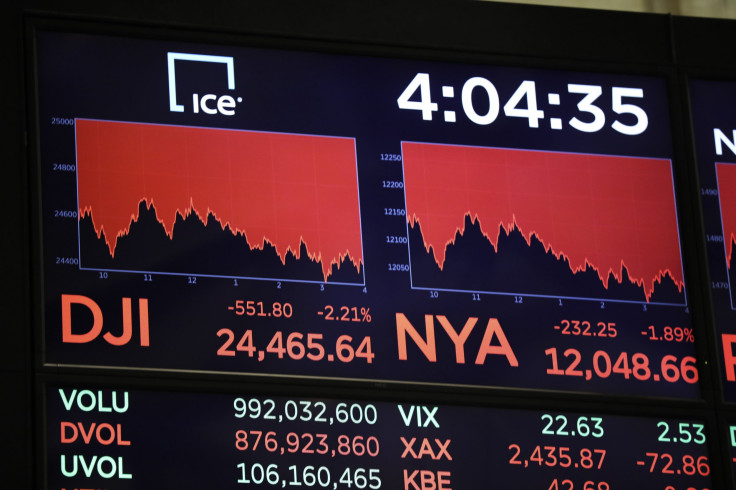Economic Recessions Are Times Of Opportunity

As the world marks the 10th anniversary of the Great Recession, economic pundits and doomsayers are already issuing early warnings of the next financial apocalypse. The reactions range from doom and gloom to abject despair. What many people don’t seem to understand is that recessions are inevitable. Like seasons, they come and go, and some seasons last longer than the other. The surf has to recede at some point as the waves break against the rocks. The key is to be prepared. The beginning of any recession is critical, for opportunities will evolve at this point. Recognizing this is an important component of surviving it.
A better way to look at the recession is to view it as an economic healing crisis. Anyone who has undergone a detoxification program for their health, will tell you what a healing crisis is. The program is meant to rejuvenate the mind and body and positively impact your well-being. However, sometimes the initial reaction to the detox program can be anything but pleasant. The process of healing sometimes includes a healing crisis (diarrhea, fevers, nausea, etc.) as toxins are eliminated from the body and the system is cleansed. Similarly, all the splurges and excesses of the economic boom or a bullish market are purged in a bearish market. It is in effect, a natural process.
The fact is that the global economy is not seamless. It is very much a patchwork of individual economies working at different speeds and with different internal ecosystems. This will naturally build up a certain amount of pressure. The latest estimate from the World Bank puts global GDP at roughly $80 trillion in nominal terms for 2017. The world’s top 10 economies together contribute to two-thirds of global GDP. The United States still has the largest GDP at $19.4 trillion, while China at the second position is far behind in nominal terms at $12.2 trillion, followed by Japan ($4.9 trillion) and Germany ($4.6 trillion).
Economic boom brings with it increased corruption, environmental pollution, over population, and income inequality. These pressure points need to be equalized at some point because when a recession kicks in, the purge needs to happen to relieve the pressure and bring back balance. The human cost of this purging process is that the masses suffer alongside the economies.
The Chinese say, in every crisis there is an opportunity. Historically, every recession has created in its wake new institutions that have built the economies anew, and often made them better. The Crash of 1929 followed the Roaring Twenties, a time of great wealth and excess. This resulted in the Great Depression, which in turn led to the emergence of a brand-new Europe, an economic resurgence in Japan, and the rise of the Turkish Republic from the ashes of the Ottoman Empire.
Recessions today however, are not as dramatic, or as drastic. The global economy has merged a lot more successfully than most people realize. If you look at historical data from the last hundred years, recession cycles came by once every two to four years on an average in the 20th century. The current period of economic expansion since the Great Recession of ’08 has perhaps been the longest in recorded history.
Also, while recessions have been quite destructive in the past, today it is more of a bump in the road. Severe though as it may be for many, it is not going to derail or set back progress to the extent it did a century ago. Yet, its effect will be not be without impact. Those at the lower end of the economic spectrum will feel it the most. Those who are not prepared will get hurt. With a few precautions, the recession can simply be a short term downturn.
- Have an investment portfolio that you can be confident of during good times and bad. Invest in recession safe assets such as gold, silver, minerals and gemstones.
- Diversify your portfolio. The best way to hedge for those who can, is to not keep all your eggs in one basket.
- Pay off debts.
- Start a savings plan. If you have extra money to allocate somewhere, before investing it in traditional vehicles, invest in your emergency fund. Cash is king during a recession.
Every recession is followed by an escalating recovery and boom time. Each time, the economy bounces back better. The trick is to remember that putting up walls between economies is merely delaying the inevitable. It builds up pressure and creates more pressure points.
A seamless world with seamless economies would have been better bolstered to handle the inevitable, cyclical ebbs and flows of the economy. However, this is not the case today. There are still enough major impediments to prolong the recession that we are most certainly on the brink of. More so than the pundits expect certainly. Unsustainable policies, inflation, trade disputes, frothy global equity markets, and slower growth among other factors are sure fire indicators that winter is upon us. But the next recession will create an entirely new direction and even escalate growth in various parts of the world invariably changing the growth patterns of the planet. The Far East with India and China will be in the vortex of this change. China has been arguably more aware of this than the West. Both the U.S. and Europe have inner turmoils to preoccupy them. In my opinion, this is the time where we sow the seeds of the next economic boom. There is no formula or process to this, but to all entrepreneurs — this is the time to strike. Or as they say, Carpe Diem!
Vijay Eswaran is an entrepreneur, motivational speaker, and philanthropist and the author of the best-selling book “In the Sphere of Silence.” An economist by training, he is the founder of a multimillion-dollar global business.
© Copyright IBTimes 2024. All rights reserved.





















